When you think of Ghana thoughts of deep blue clouds, vast oceans and beautiful sunny atmosphere with ever-smiling people come to mind, have you ever thought of what they eat? Let me break it to you, Ghanaian cuisine is so good that even neighbouring countries, such as Nigeria claim the invention of it. Not only because of the famous Jollof, akple, and fufu, Ghanaian cuisine has an enormous array of mouth-watering dishes and eateries.
Below, I summarize what the people of the country Ghana eat and how they are prepared. To start with, most of the ingredient in traditional Ghanaian cuisine is mostly made of maize, rice, yam, and beans. They mostly go with a soup or stew. Soups and stews are often made of canned tomatoes, hence are mostly red-coloured. Just the thought of all these delicious makes me hungry.
What you should know about Ghanaian cuisine?
Ghanaian food is eaten with the right hand and with a big bowl of water beside you to wash your hand. This attests to the simple fact that most food eaten in Ghana is the traditional/local and that is simply the preferred way of eating them. They say “when you get to Rome do what the Romans do”, so when you get into Ghana and you're about to dip into your bowl of ‘akple’ and grilled tilapia be sure to wash your hand and use your right hand to eat. With all the varied sorts of food - Ghanaian cuisine is nutritious, healthy, and most of all delicious. Here are some mouth-watering dishes you will love to have a taste of once in Ghana.
Stews and soups
As a visitor to Ghana first you must know about soups and stews. They are the sauce ‘accompaniment’ to most of the food. Soups are mostly more watery while stews are dryer. They are prepared using canned or fresh tomatoes. Some of these soups and stews are lightsoup, palm-nut soup, kontomire stew, and shitor (hot pepper sauce).
Because of the wide variety of food, we will group them into different categories.
The traditional foods
These are dishes originated from a particular ethnic/tribe of people, they can be eaten by anyone and are mostly starch-based. Full of carbohydrates and are rather ‘heavy’.
Fufu
Fufu is a staple food in West Africa but in Ghana, it is the traditional food of the Ashanti’s. Fufu is prepared by pounding boiled yam or cassava with plantain. Fufu has an exceptionally delicious taste that can simply not be described. On a cool Sunday or Saturday go to any popular restaurant or “Bar” and order fufu. If you truly want to be blown away order it with ‘goat lightsoup’. Just make sure you do not eat it too late into the night as it does not digest quickly. I promise you it will be very delicious and you will leave the restaurant happy.
Perhaps the most popular and delicious food from Ghana is the Jollof
It is a meal that has brought a controversy between Ghana and Nigeria. Sometimes you can see social media friendly-contests between citizens of these two countries to see who prepares the best Jollof. Originally it was brought to Ghana by Senegalese immigrants in the post-independence era. It is prepared by boiling rice with spices and canned tomatoes. You can get it at almost any time from any restaurant or food vendor. Although it doesn't qualify as traditional food, it is loved by the locals and unarguably the best rice food.
Akple (Banku)
It is the traditional food of the Ewe. Locals often serve it in the evening and sometimes as breakfast. It consists of mostly starch and its prepared by cooking cassava-dough and yam-dough. Usually it comes with lightsoup, okra soup or goat soup.
Kenkey
At the mention of kenkey, the people will tell you it is a national favourite, despite a few differences in how it is cooked. It is based on starch – cooked fermented corn, wrapped in maize leaf. This dish originates from the Ga people. They usually add grounded pepper and serve with meat or fried fish. You might also come across the name ‘kokoe’ or ‘kormi’ for the same dish.
Tuo-Zafi
This is a millet, sorghum, and maize-based food that originated from the northern people of Ghana. It is popular in the Islamic community of Ghana and can be eaten in the evening.
Street food
Usually sold by local food vendors street food can be found at almost any time of the day.
Waakye
The successor in the battle of rice foods to Jollof is waakye. Waakye is prepared by cooking rice and beans and is mostly eaten with shitor and stew. The best time to eat wakye is in the morning or afternoon. You'll love to eat it hot.
Tsofi
This is Deep-fried turkey tails seasoned with onion and garlic. It could be served with banku or fried yams. It is a common fast food everywhere in Ghana. It can be enjoyed at any time of the day with the grounded pepper sauce.
Kelewele
No record of conventional Ghanaian meals can be complete without this savory facet dish. Kelewele is a prompt favorite amongst anybody who tries it, even those that aren’t big followers of peppery food. Normally offered as a snack or facet dish throughout Accra, it is made of fried mushy plantains that have been soaked in a medley of peppers, ginger, and garlic. The aroma is crisp and strong, whereas the nice plantain provides some sweetness to the sour.
Red-Red (Gobe)
Fondly called Gobe by the indigenous people, it is the result of cooking beans (cowpea) till it becomes soft. Palm oil and Gari are added to it and ‘Voila!’, red-red is ready!
To wrap up this delicious lesson in your journey to Ghanaian cuisine, here are couple of tips that might help you. Firstly, be inquisitive and open-minded in regards to the range of the cuisine. The variety of foods are so different where you might come from but give it a try and embrace the difference and try! Secondly, feel free to request for a reduction in the amount of the chili pepper if you have a delicate stomach (by default, soups and sauces are always peppery hot). Oh, and on that note, if somebody holding a bowl of meals ever says to you, “You are invited,” be at liberty to say no two times before accepting the offer.
In Ghana eating within the presence of another person without “inviting” them to share your meal is taken as being impolite (Traditions of hospitality and generosity). Additionally, it is impolite to simply accept the first invite to share someone’s meal (you should always remember this anytime you’re in Africa). But should you decline twice, and the diner insists a 3rd time, then they insisting it and its okay to accept them up on their offer.

Desmond Dorvlo, GhanaTRVL writer and champion debater, brings Ghana’s culture and landscapes to life with passion and insight in every article.

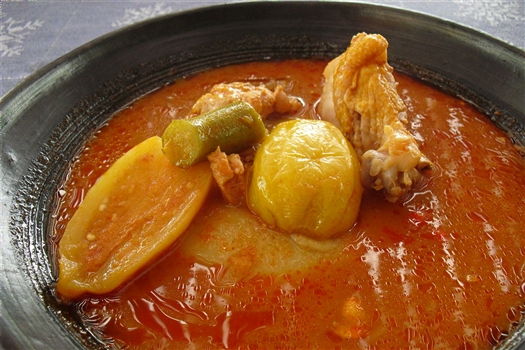

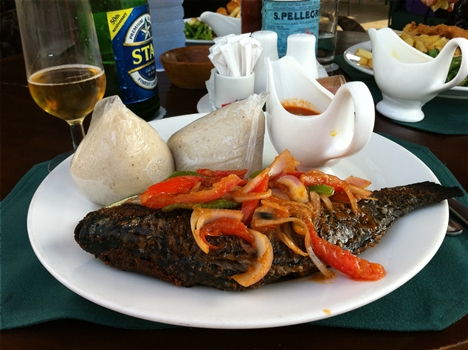
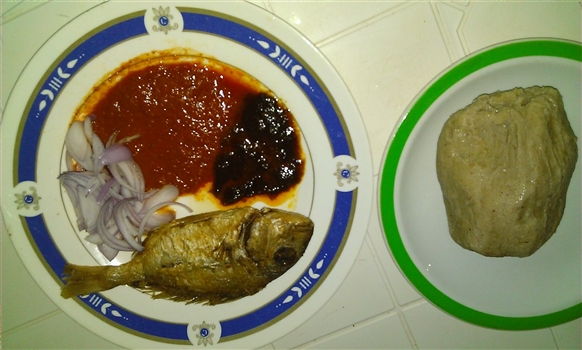
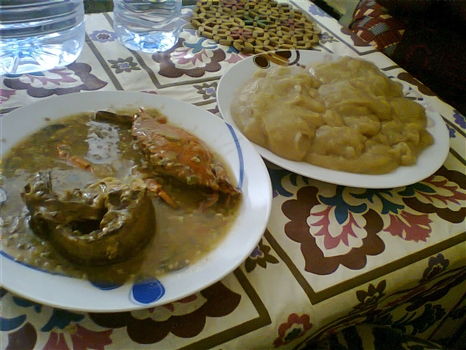
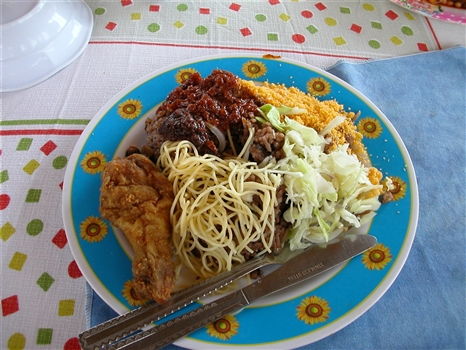
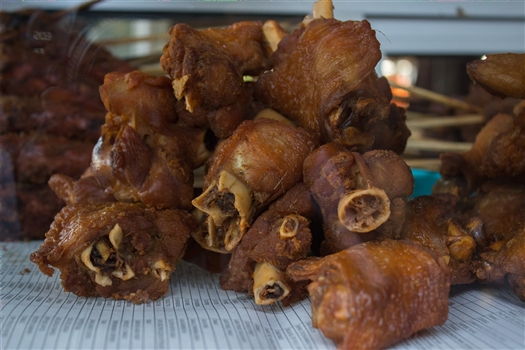
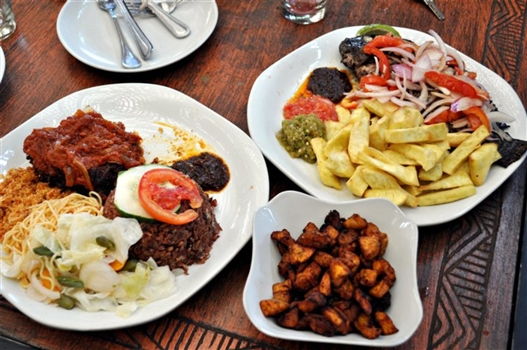





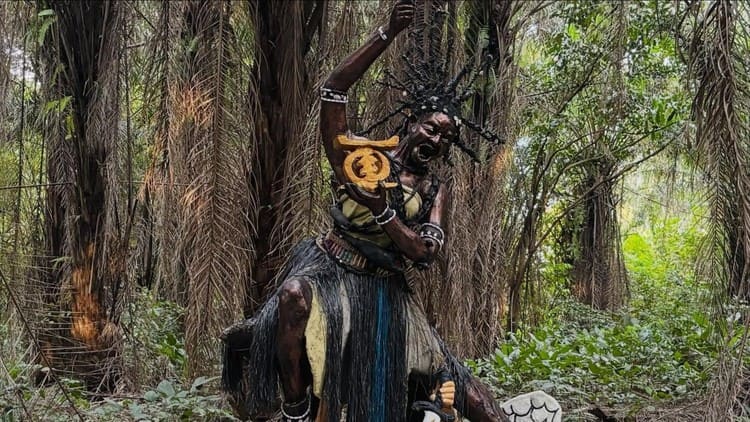
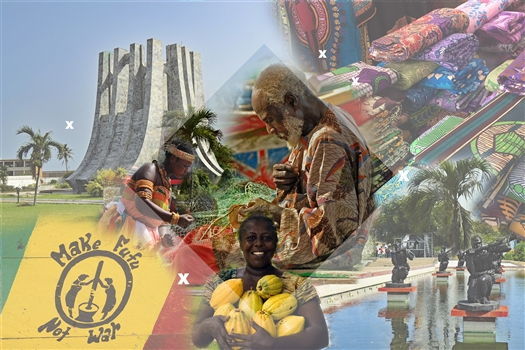

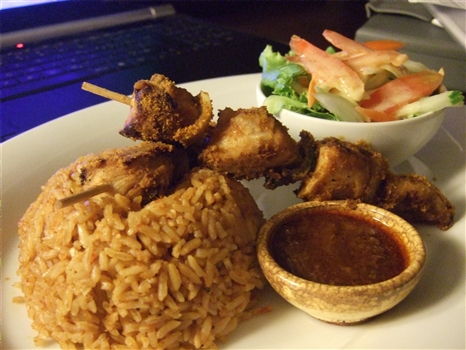

Comments